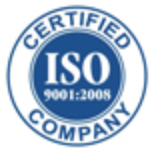
After recent events in the Houses of Parliament, the UK is currently experiencing the greatest changes to its trading agreements for almost 250 years.
For many of us, it’s easy to think that the worst case scenario of these changes – a no deal Brexit – will have little impact on our lives. But in reality, this viewpoint is far from the truth.
Why? Because Oxfordshire and the Thames Valley region is a hive of employment activity, leading the way in sectors such as professional services, technology, hospitality and education. One key sector that employs hundreds of thousands of us each day is manufacturing, where we produce and export everything from chemicals and cars to pharmaceuticals and semiconductors.
Because a no deal Brexit affects the area far more than you might think, here are four important things you might need to know about a no deal Brexit.
1. Article 50
This is the legal mechanism which takes the UK out of the EU.
Easy so far, right?
2. 29th March 2019
This is the date on which Article 50 is enacted.
Still don’t see what all the fuss is about?
3. Votes
Theresa May has to get her EU withdrawal bill approved by parliament before 29th March 2019. And she’s had almost three years to do it. Her first go was in December 2018, but she got wind of a big loss so she delayed it until January 2019, where she suffered a big loss. She had another go on Tuesday 12th March, which she lost, so Parliament must next vote on Wednesday 13th March whether the UK should leave the EU without a deal. If they vote against a deal, they will vote on Thursday 14th March about whether Article 50 should be extended.
OK so things just got complicated.
4. Tariffs
As part of the EU, the UK currently has 0% import and export tariffs on all products to other EU countries, which is the UK’s biggest export market. Under a no deal Brexit, the government has confirmed that 87% of all goods will have a temporary import tariff of 0%. This is to protect UK consumers from a £9billion price hike but does not apply to most meat and dairy, in order to protect UK agriculture. Key to us though is exports, and without a deal we fall onto World Trade Organisation (WTO) tariffs. The WTO is an agreement for 164 countries who currently don’t have agreements to trade with each other, although this may soon be 165. Although the average tariff is relatively low at 2.8%, some items such as cars are taxed at 10% which would not be good news for BMW Mini. Others such as dairy are even higher at 35%.
Yep, I can definitely feel a headache coming on.

